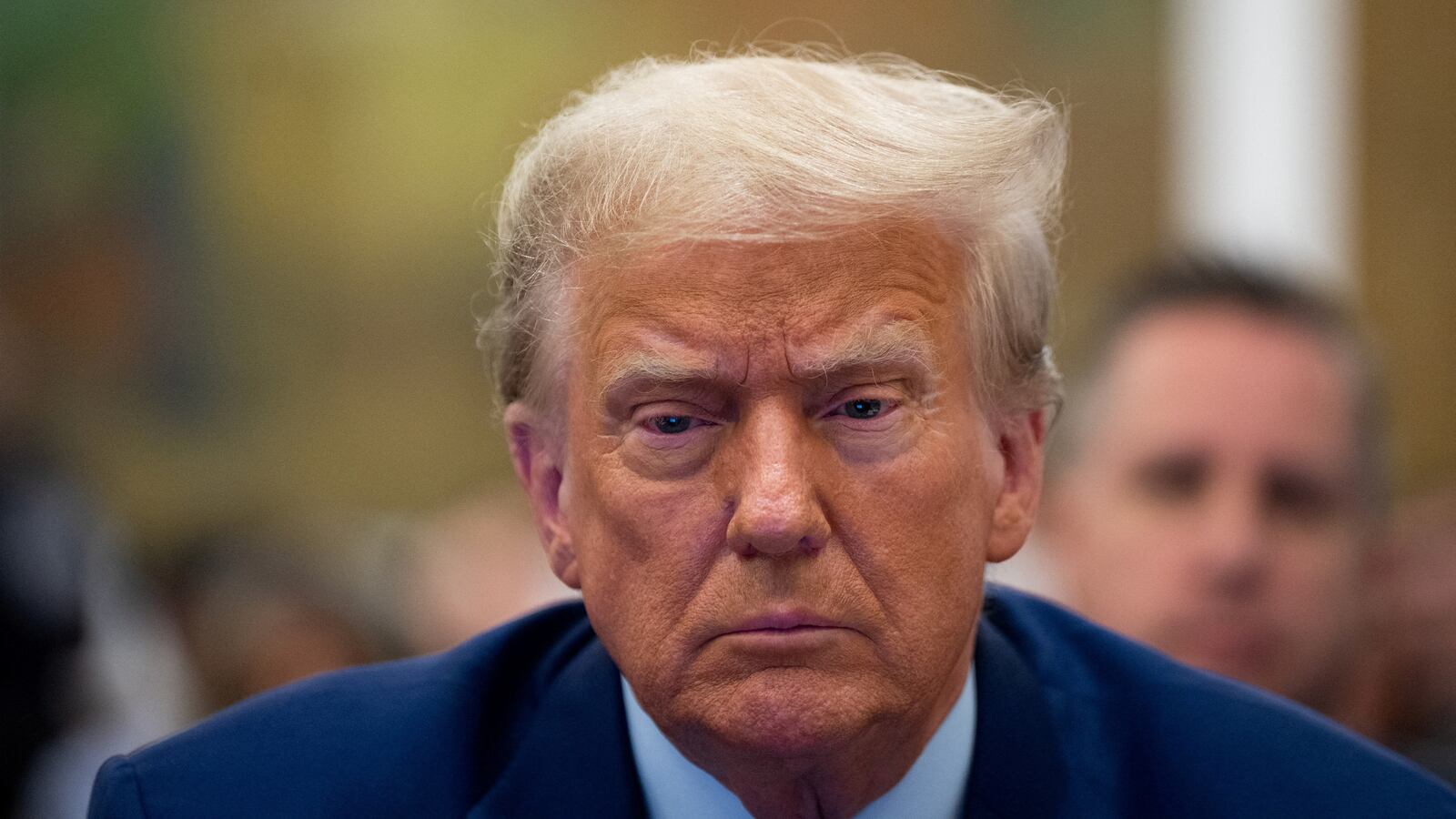A federal appeals court on Wednesday shot down Donald Trump’s assertion that presidential immunity shields him from a defamation lawsuit brought by writer E. Jean Carroll, who accused the former president of raping her in a department store dressing room some 30 years ago.
Trump, who was found liable earlier this year for sexually abusing Carroll, waived his right to immunity by waiting too long to raise it as a defense, the three-judge panel unanimously ruled. The stage is now set for Trump to stand trial in civil court next month over Carroll’s claims he defamed her in statements denying the allegations. Trump made the denials in 2019, while he was still president; Carroll brought her lawsuit in 2020.
“A three-year delay is more than enough, under our precedents, to qualify as ‘undue,’” states Wednesday’s decision, written by Judge Jose Cabranes. “And Defendant’s excuse for not timely raising the defense—that the question of whether the Westfall Act immunized Defendant was pending before the District Court, this Court, and the District of Columbia Court of Appeals between September 2020 and June 2023—is unpersuasive.”
The panel rejected the Trump team’s argument that presidential immunity, for various reasons, is non-waivable. And Trump, it states in no uncertain terms, did in fact waive it.
“[R]ecognizing presidential immunity as waivable reinforces, not undermines, the separation of powers and the President’s decision-making authority by affording the President an opportunity to litigate if he so chooses,” the decision says. “Accordingly, we hold that presidential immunity is waivable.”

E. Jean Carroll departs Manhattan Federal Court in May 2023.
David ‘Dee’ Delgado/ReutersTrump’s appeal did not explain how the debate over the Westfall Act, which immunizes federal employees from being sued for actions taken on the job, “precluded him from raising a defense of presidential immunity,” the decision states. “Indeed, Defendant first raised presidential immunity in January 2023—that is, during the pendency of the Westfall Act dispute.”
The decision goes on to pick apart Trump’s contentions, one by one, noting that, apart from a single example, “none of the cases Defendant draws to our attention concern immunity at all, much less presidential immunity.” In at least one instance, the gambit floated by Trump “hurts, not helps, Defendant’s case,” and actually “points in the opposite direction” than intended, it states. Among “scattered references” that don’t do what Trump’s lawyers think they do, the panel dismantled Trump’s argument that “none of his statements about [Carroll] were defamatory per se under New York law because they did not tend to cause injury to her trade, business, or profession, and that the District Court applied the wrong legal standard to his statements.”
To this, the decision counters, “Far from being inextricably intertwined with or necessary to ensure meaningful review of the District Court’s denial of presidential immunity, whether Defendant’s statements fell within the outer perimeter of his official presidential duties has nothing to do with whether the statements qualify as defamatory per se.”
U.S. District Court Judge Lewis Kaplan has already ruled Trump’s statements about Carroll—saying she wasn’t his “type,” and calling her accusations untrue, among other things—were defamatory. The upcoming civil trial will focus solely on how much Trump owes Carroll in monetary damages.
“We are pleased that the Second Circuit affirmed Judge Kaplan’s rulings and that we can now move forward with trial next month on January 16,” Carroll’s lawyer, Robbie Kaplan, said in a statement.
Trump lawyer Alina Habba said in her own statement, “The Second Circuit’s ruling is fundamentally flawed and we will seek immediate review from the Supreme Court.”
The twice-impeached, quadruple-indicted former commander-in-chief is also trying to claim “absolute immunity” on criminal charges pending against him over attempting to subvert the results of the 2020 election. The Supreme Court on Monday agreed to expeditiously consider the issue, at the request of Special Prosecutor Jack Smith.
Trump has pleaded not guilty in each of the four state and federal criminal cases against him.





